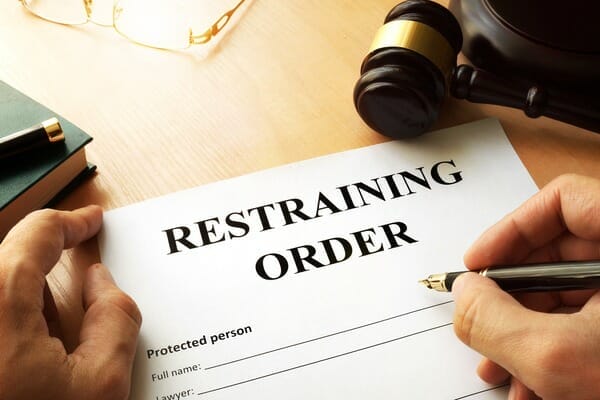Introduction: What is a Domestic Violence Charge and the Potential Implications
Domestic violence is a serious offense. If you are charged with an incident of domestic violence, it is important to understand the possible consequences and what to expect when you go to court.
A domestic violence offense can involve any kind of physical harm or threat which is directed towards an intimate partner – including a family member, spouse, child, or current or past romantic interest.
If found guilty, the charge will come with a variety of consequences ranging from fines to jail time. This guide will explain everything you need to know about domestic violence charges, from how to spot them to the repercussions if convicted.
How are Domestic Violence Charges Classified?
Domestic violence charges involve a person hurting another person. Depending on the severity of the situation and what happened, charges can be either felonies or misdemeanors.
A felony charge is a more serious charge than a misdemeanor, and could lead to prison or jail time if found guilty. Charges of aggravated assault are often felonies and may come with hefty fines and other penalties.
Spousal abuse charges involve a situation where one spouse harms another—it could also be classified as a felony depending on the circumstances. False accusations of domestic violence may result in consequences, but they are usually considered misdemeanors. All domestic violence charges should be taken seriously, no matter the classification!
What are the Penalties for Domestic Violence Conviction
If you are found guilty of domestic violence, you could face serious penalties. First, the court may order a restraining order. This means that you have to stay away from the people you hurt. Breaking this order can lead to jail time and hefty fines.
Additionally, criminal charges could be filed against you which could also come with fines or jail time. Lastly, a domestic violence conviction can be costly in both emotional and financial terms. So it’s important to think about the consequences of your actions before engaging in any type of violent behavior.
Common Defenses Against a Domestic Violence Charge
When it comes to domestic violence charges, self-defense laws can help protect people from false accusations. This means that if someone has unfairly accused you of abuse, then you may be able to use the law to defend yourself.
You might want to try and explain what happened in your own words, or with facts and evidence that support your case. These things can help show that you did not commit a crime and were trying to protect yourself from harm.
It’s also important to remember that even if the other person says something hurtful or untrue about you, it does not mean that you have to respond in the same way. You can take control by calmly showing respect and trying to resolve the situation fairly.
Ultimately, it’s up to the court system to decide if you are innocent or guilty. So make sure you know your rights and your defense options, so you can stand up for yourself and make sure justice is served accurately and fairly.
What Resources Are Available for Victims of Domestic Abuse?
If you or someone you know has experienced domestic abuse, there are many resources available. Support groups provide a safe place for victims to speak about their experiences and receive emotional support.
There are also hotlines that offer advice and referrals for services like counseling and legal help. For those seeking financial assistance, there are grants and scholarships that can help cover costs associated with rebuilding one’s life after an abusive relationship.
Finally, community centers often provide practical guidance in the form of job training and housing solutions. No matter what kind of help is needed, there is always hope that things will get better.
Types of Domestic Violence Charges & Their Respective Penalties
Domestic abuse charges are serious offenses. Depending on the type of offense committed, a person can face harsh penalties and consequences. There are three common types of domestic violence charges: assault, stalking, and harassment. Assault is an intentional act that causes physical harm to another person; this can range from pushing someone to actual bodily injury.
Stalking is making repeated unwanted contact with another person while harassing involves words or actions that make another person fear for their safety. The consequences of being found guilty of a domestic violence charge can include fines, jail time, community service, and protective orders. No matter the type of charge, it is important to take it seriously and understand the possible punishments!
Factors to Consider When Facing Domestic Violence Charges
When someone is accused of domestic violence, it’s important to think through their options carefully. Pleading guilty can mean major consequences like jail time, fines, and having a criminal record.
It’s best to speak to an attorney who can explain all the risks involved in pleading guilty. The other option is to fight the charge in court. This comes with the benefit of potentially having the charge dismissed, but also carries its own risks that need to be considered. It’s important to weigh all the factors before deciding which route to take.
What are the Strategies Used to Defend Against Domestic Violence Charges?
Defending against charges of domestic violence can be difficult – but not impossible. Here are some strategies that can help you beat a DV charge in court. First, it’s important to have good evidence and witnesses.
Evidence could include photos or documents that prove your side of the story, while witnesses could take the stand to back up your claims. Another strategy is to make sure you understand the law related to domestic violence. An experienced attorney can help with this.
Finally, having a support system is key. Friends, family, and professionals may be able to provide care and assistance during this difficult time.
Legal Implications of Domestic Violence Charges & How to Avoid Them
Domestic violence is a serious offense that has heavy legal consequences. If you are accused of this crime, it can be difficult to avoid the penalties and punishments. It’s important to understand your rights and take precautions if involved in a domestic abuse situation.
The most common penalties for domestic violence include jail time, probation, fines, court-mandated therapy, and restraining orders. Each state has its own laws regarding how these penalties are applied.
The best way to avoid getting charged with domestic violence is by being aware of your state’s laws and steering clear of any disputes or arguments that could be labeled as domestic violence.
If you find yourself in a dangerous situation, it’s best to call 911 or contact a family member or friend who can help you safely remove yourself from the situation. Additionally, keep track of any injuries or evidence that could be used against you in court if the situation escalates. Educating yourself on domestic violence laws will also help you make well informed decisions.
Remember that domestic violence is never okay and can have severe consequences. Fortunately, there are things you can do to avoid being charged with this crime. Respect the law, use common sense, and stay safe!
The Role Of Law Enforcement in Investigating Domestic Violence Incidents
When it comes to domestic violence, law enforcement officers are like superheroes! They’re always ready to make sure people are safe and that justice is served. When a call comes in, they use special protocols to secure the scene and make sure evidence is gathered.
They’ll talk to witnesses or victims too so they know exactly what happened. The information collected helps the police figure out if a crime was committed or not. If there is a suspect, they will be taken into custody and put on trial so the proper punishment can be given.
Law enforcement officers make sure domestic violence cases are handled with respect and fairness. That’s why they’re heroes – because they save the day!
What Can You Do if You Have Been Falsely Accused of Domestic Violence?
If you have been falsely accused of domestic violence, it is important to stay calm and collect evidence that proves your innocence. Start by gathering any records or documentation that shows your side of the story. This could include emails, text messages, witness statements, or photos.
You should also contact an experienced lawyer who can help you fight the restraining order or protect your rights during court proceedings. Speak honestly about what happened and make sure that your lawyer is aware of all the details in your case.
Lastly, be respectful and courteous when interacting with law enforcement officers; this will help ensure that your case is handled fairly and appropriately.
How to Utilize Your Legal Right to Emergency Services & Resources After Facing a Domestic Violence Charge
Facing a domestic violence charge can be overwhelming. But you have legal rights and there are services and resources out there to help. After an arrest, you have the right to receive information about getting an attorney, talking to investigators, filing a restraining order, and understanding your rights in court proceedings.
You also have access to domestic violence shelters and hotlines that provide emotional support and practical advice. Knowing the laws and the resources available to victims of domestic violence is vital for navigating the court system safely and confidently.
The Legal Proceedings Involved in a Domestic Violence Case
The legal proceedings involved in a domestic violence case are serious and require skilled representation. To ensure their case is carefully managed, those affected should hire an experienced criminal defense lawyer to handle the criminal prosecution process.
This attorney will be tasked with representing them at court hearings, filing motions and briefs as necessary, developing effective strategies for navigating the judicial system, and speaking on behalf of their client.
With the help of a knowledgeable law professional, those facing a domestic violence charge can be assured that their rights remain fully protected and their best interests are always served.
Conclusion: How to Get Help if You’re Facing a Domestic Abuse Charge
Facing a domestic violence charge can be stressful and overwhelming, but understanding the process and knowing your rights is key to making sure you get a fair outcome.
The Complete Guide to Understanding Domestic Violence Charges and What to Expect provides invaluable information about the laws and procedures pertaining to these charges, equipping readers with the knowledge to build strong cases whether they are victims or perpetrators of domestic violence. It’s essential reading for anyone facing the criminal justice system today.









